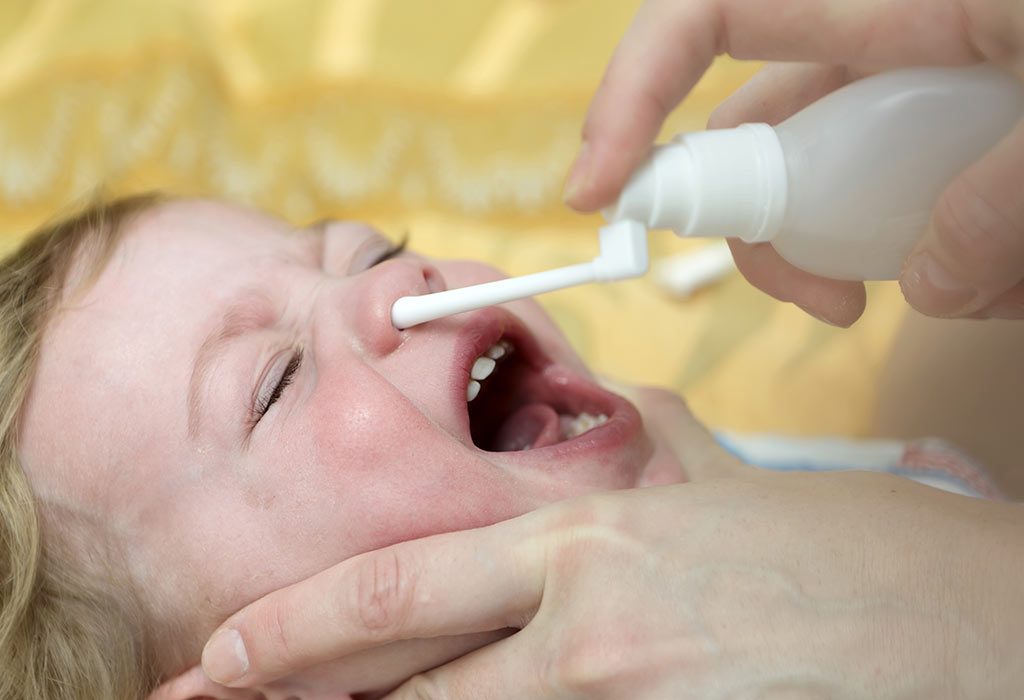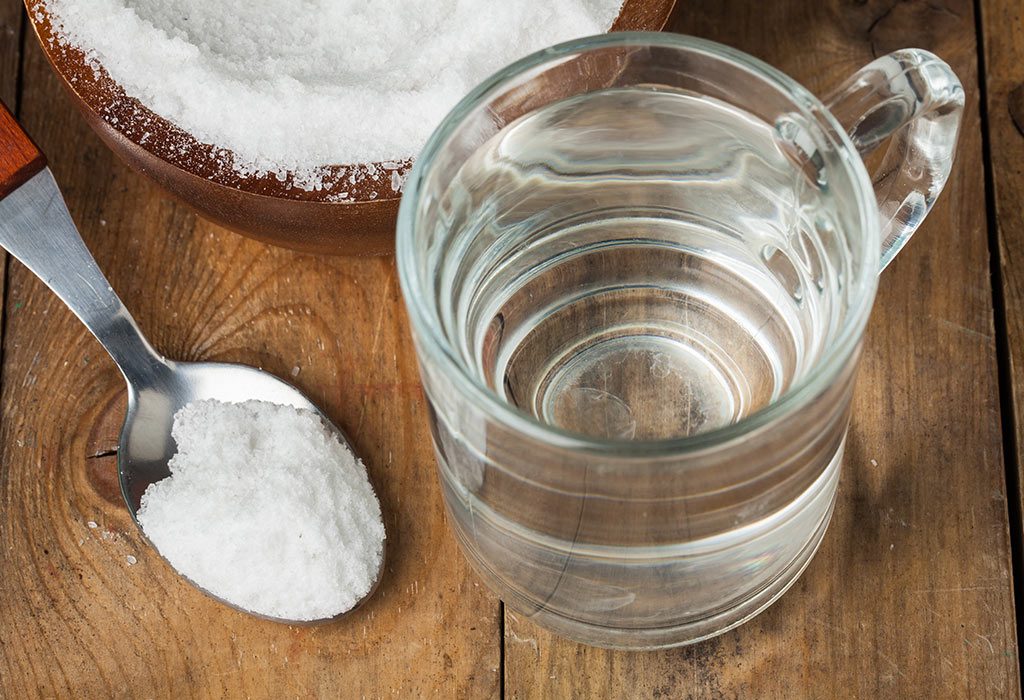In this Article
For a baby, the act of breathing is what requires the most effort in the initial phases. Even as adults, a blocked nose causes discomfort and irritation since it takes away the ease of breathing. In babies, this can cause a lot of trouble as your baby may cry or cough in order to breathe better. Clearing a blocked nose is extremely important in babies, and nasal drops are your best bet in that regard.
What Are Nasal Saline Drops?
Saline drops that are made for the nose are nothing but a proper mixture of water and salt. Putting a few drops of this solution in your baby’s nose can help clear up any blockage. For babies suffering from cold, the mucus will clear the nose and allow the baby to breathe normally. This works on kids as well.
How to Give Saline Nasal Drops to Babies
Administering nasal drops to young babies can be achieved through the following steps:

- Wash your hands clean using soap and water.
- Use a syringe or a dropper and pull in the dosage as recommended.
- Hold the dropper in your dominant hand and use the other arm to hold your baby.
- If a lot of mucus is present on the outside, clear it out first using a small suction bulb.
- Do not insert the dropper in your baby’s nose. Place it just outside the nasal cavity and squeeze it.
- Keep some more solution nearby in case the dropper gets used up in one nostril.
- Continue holding your baby as is so that the solution has time to travel down the blocked track.
- Sometimes the solution can reach the throat and cause your baby to cough. Hold him up in a sitting position when this happens.
Benefits of Baby Saline Drops/Sprays
Using saline drops or nasal sprays to relieve blocked nostrils is an effective technique, because:
- They do not contain any medicinal substances that can affect the baby adversely.
- They provide almost instant relief.
- They can be used by kids and adults alike.
- They are quite cheap and easily available in medical stores without a prescription.
Side-Effects of Using Saline Nasal Drops/Sprays for Babies
As simple as it might seem, if the right precautions are not taken, administration of nasal drops could result in a few problems that may not be suitable for your baby.
- Failing to observe basic hygiene such as cleaning your hands properly could cause germs from your hands to enter the child, infecting him further.
- Sharing the same dropper amongst several people without sterilizing it first is an open invitation for various diseases.
- At times, the nose could get even runnier and cause multiple sneezing bouts. Your baby might also have a dry nose instead of a runny nose and have breathing trouble, nausea, sweating, or swelling along with fussy behaviour. Contact the doctor right away in such cases.
- For long-lasting effects, you have to give nasal drops repeatedly 2-3 times a day till the blockage is completely gone; any more than 3 times a day can make her nose sore.
How to Make Saline Nose Drops for Your Child at Home
Homemade saline drops for infants are not at all difficult to make and can be quickly prepared to remedy a blocked nose.

What You Will Need
- Tap water or distilled water
- A measuring cap
- A pan
- Spoons to measure
- Non-iodised salt
- Baking soda
- Dropper
How to Make
- Pour the water into the saucepan. Place it on a flame and let it boil for about 10 minutes. This takes care of any bacteria present in it.
- To make the solution, mix 3 teaspoons of non-iodized salt and one teaspoon of baking soda. Store it in a small, clean jar. When you are ready to use it, mix a teaspoon of the mixture into 8 ounces of previously boiled and cooled water.
- After stirring them in and ensuring that they have dissolved completely, take as much solution as required and keep the rest in a clean bowl for no more than 24 hours.
- Use a dropper to take a small amount of solution while it is warm. Make sure it isn’t too hot or cold but close to body temperature.
- Add a couple of drops each in your baby’s nose. Wait for half a minute before you start cleaning the liquefied mucus that comes out.
A blocked nose is nothing more than a small hindrance that causes irritation. Medication is the last resort that is rarely recommended by doctors. Nasal drops are quick and effective and can relieve your baby from the trouble, bringing him back to the playful mood he loves to be in!
Resources and References: Very Well Health









